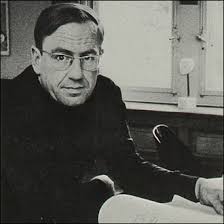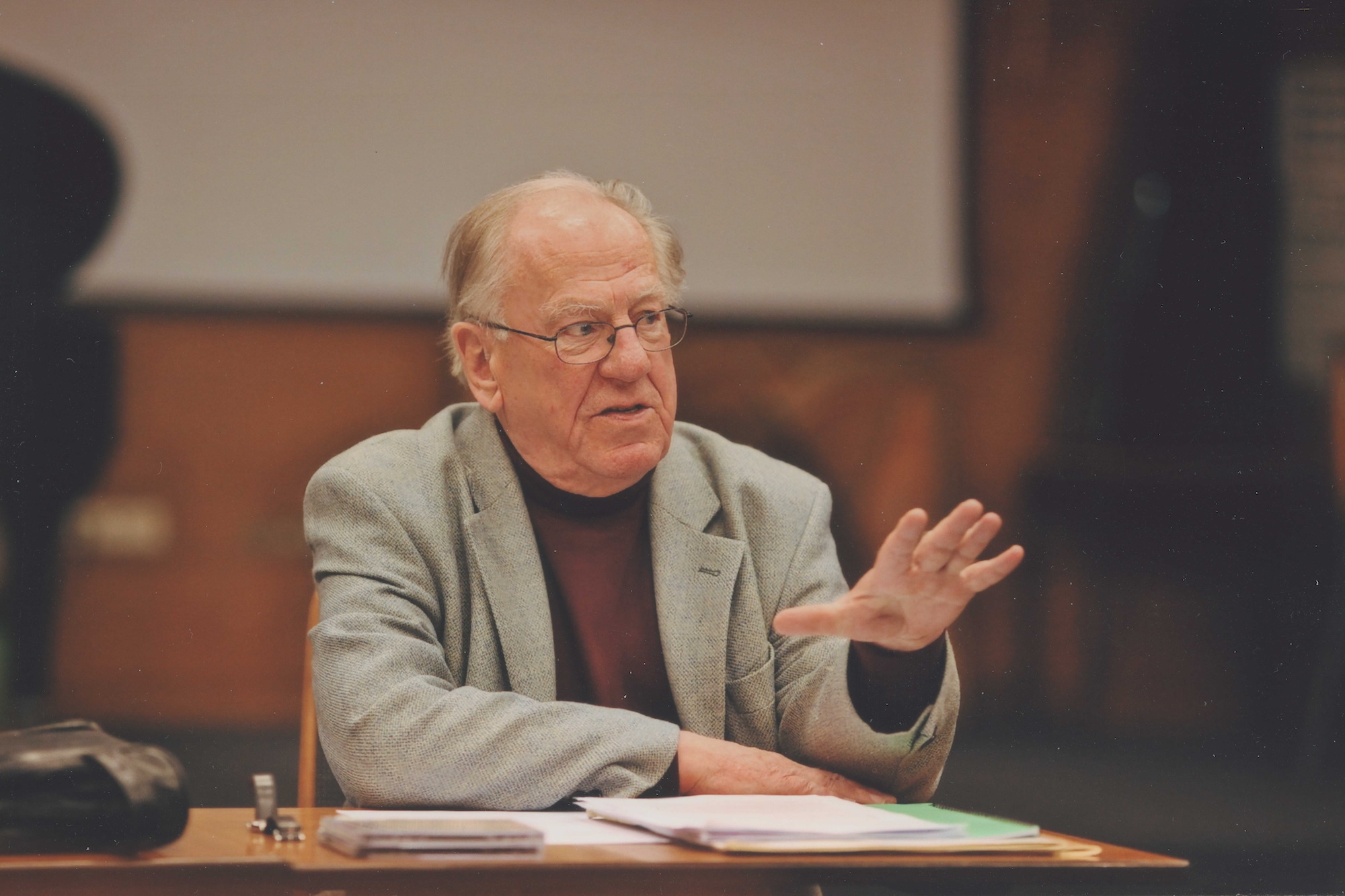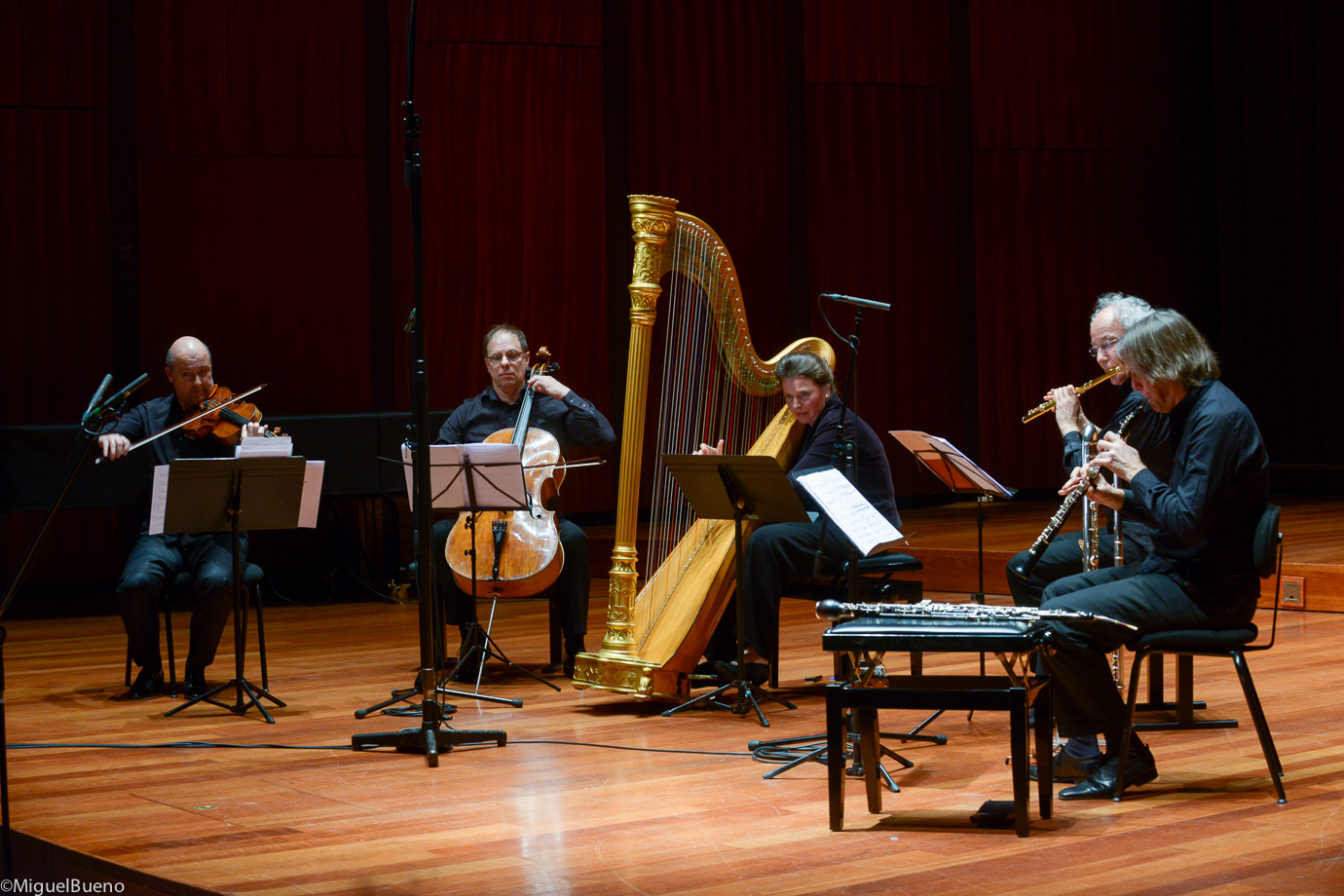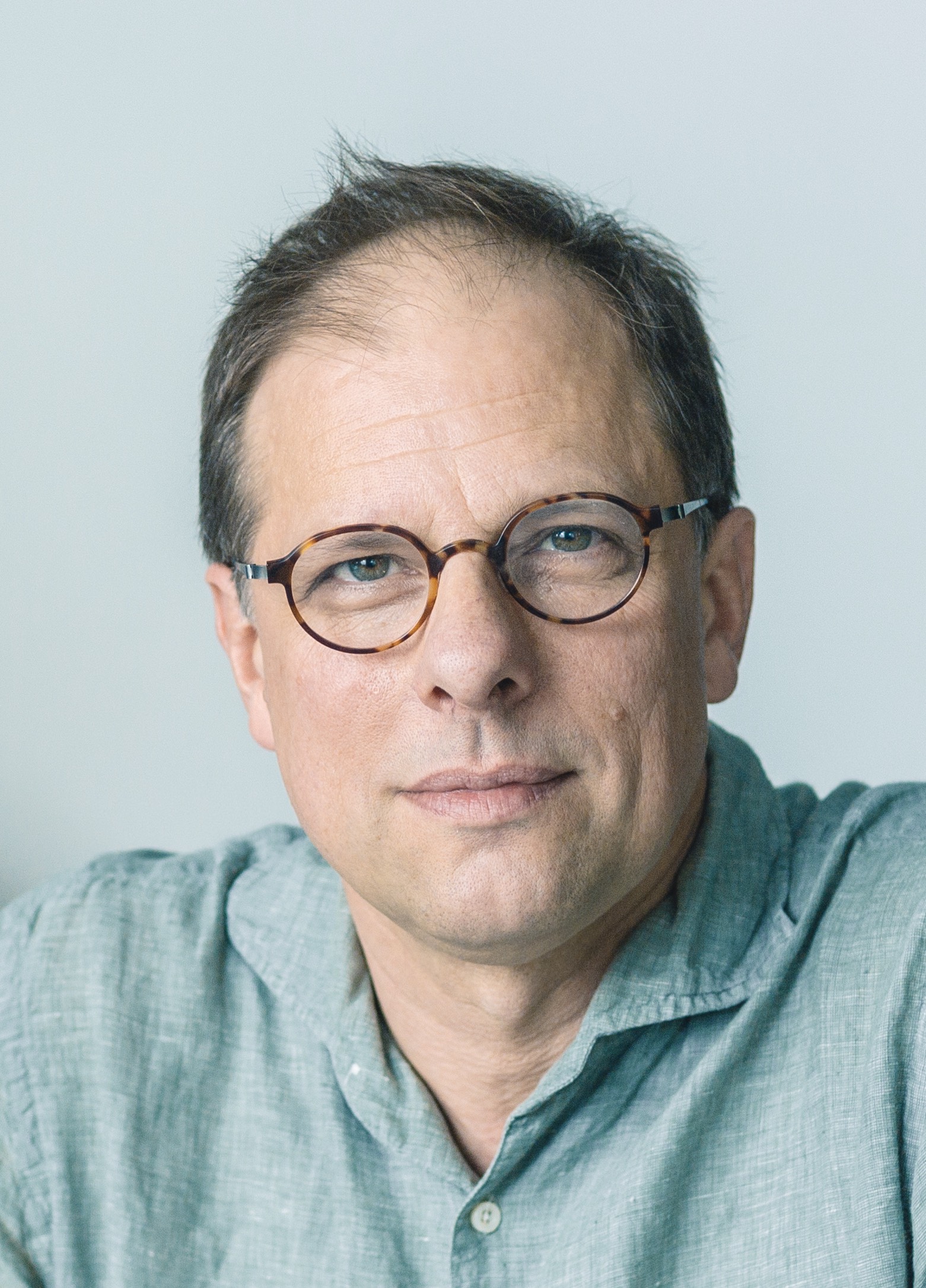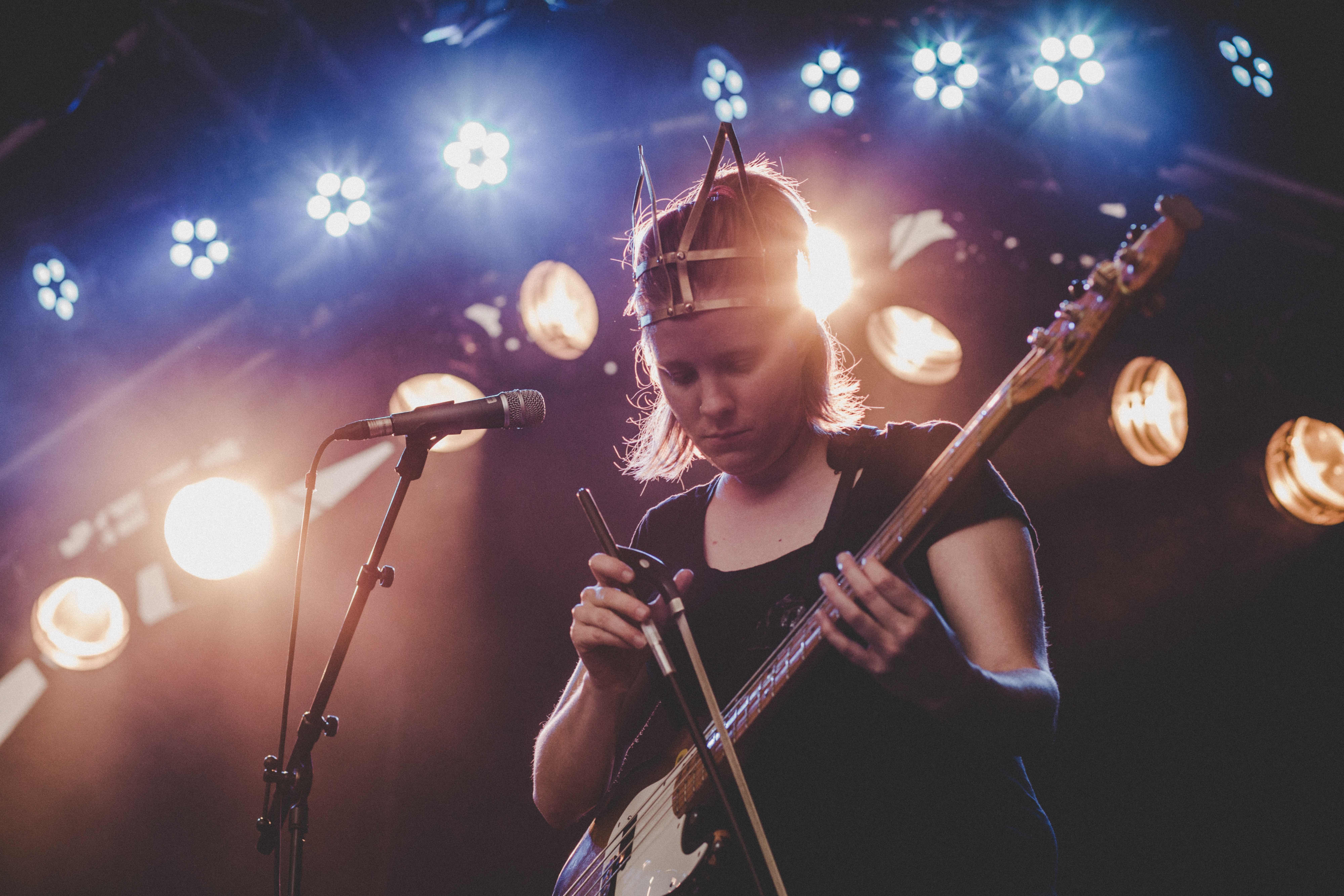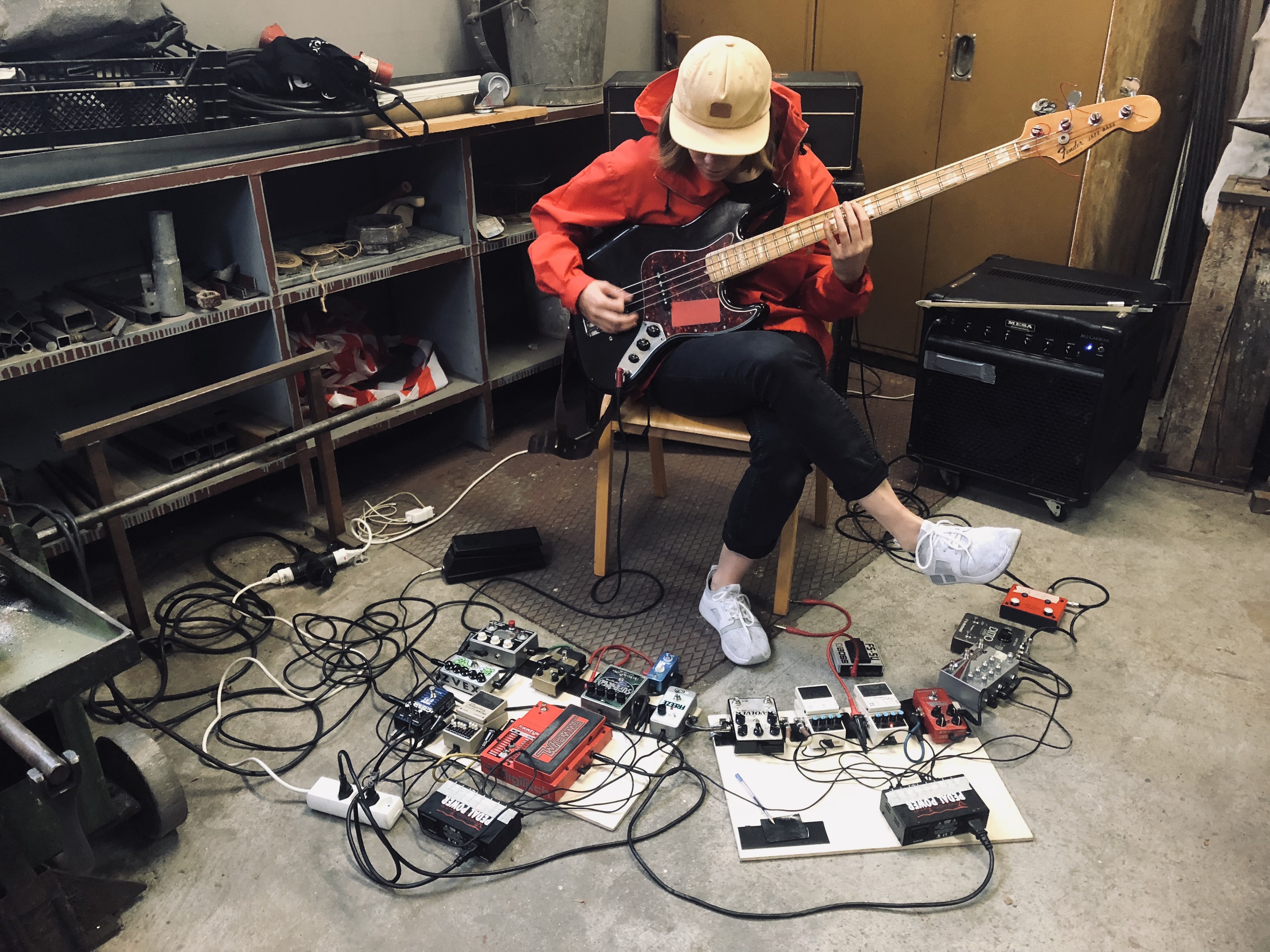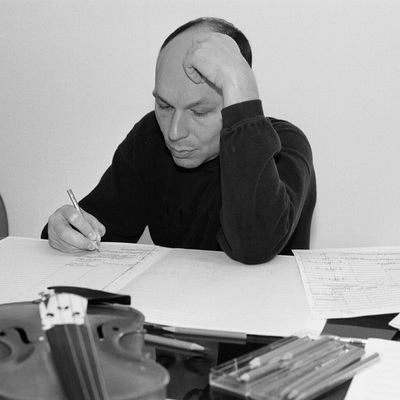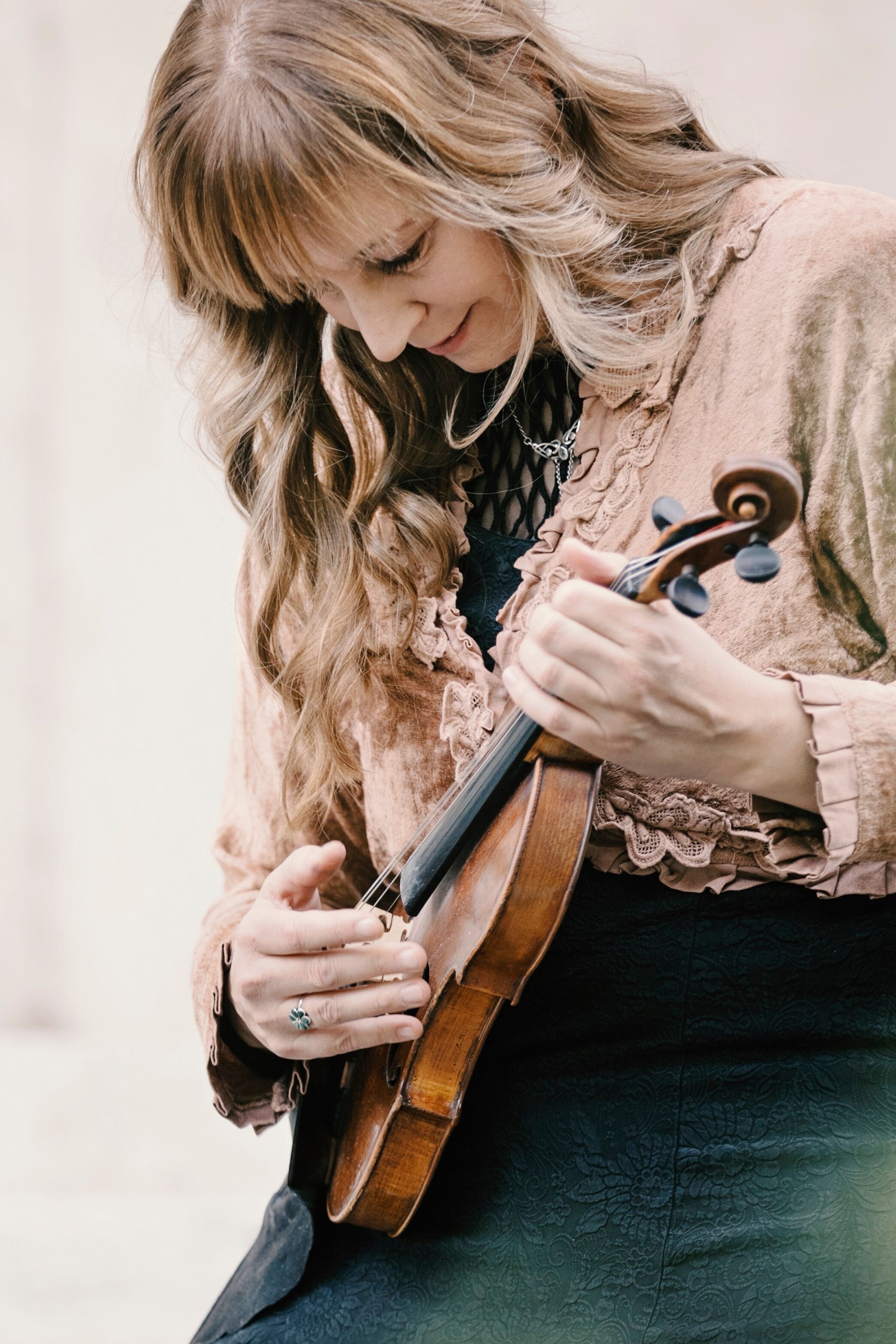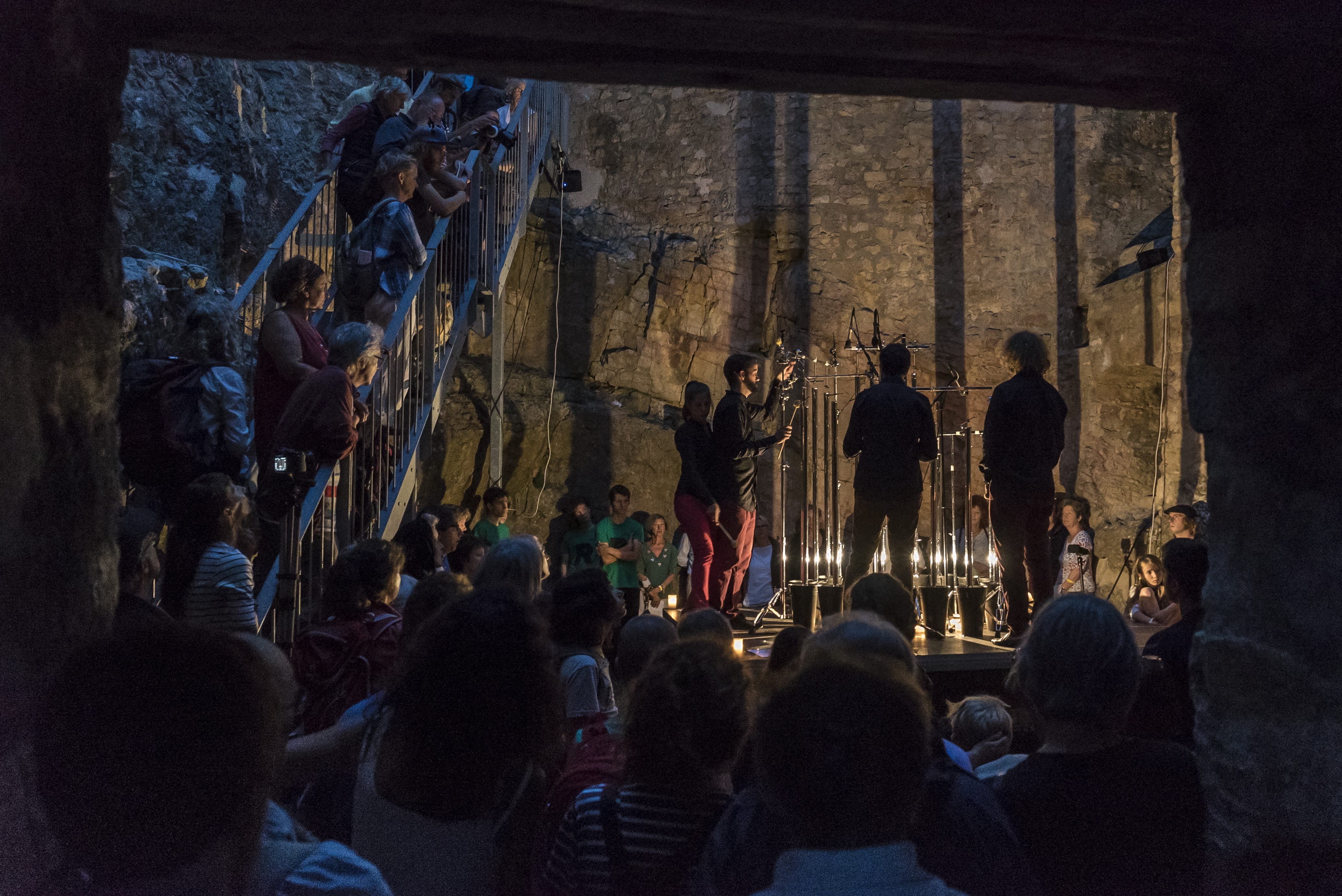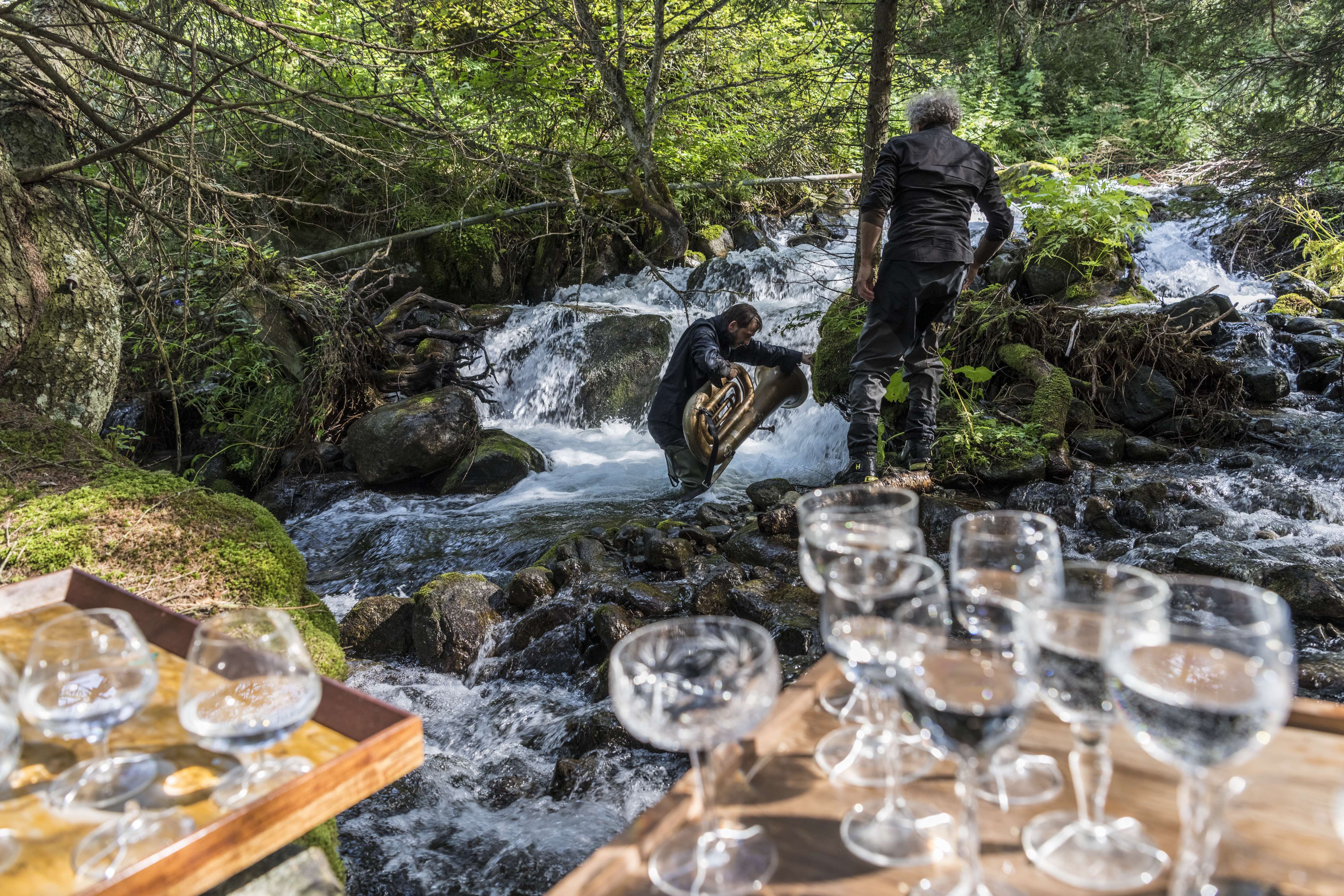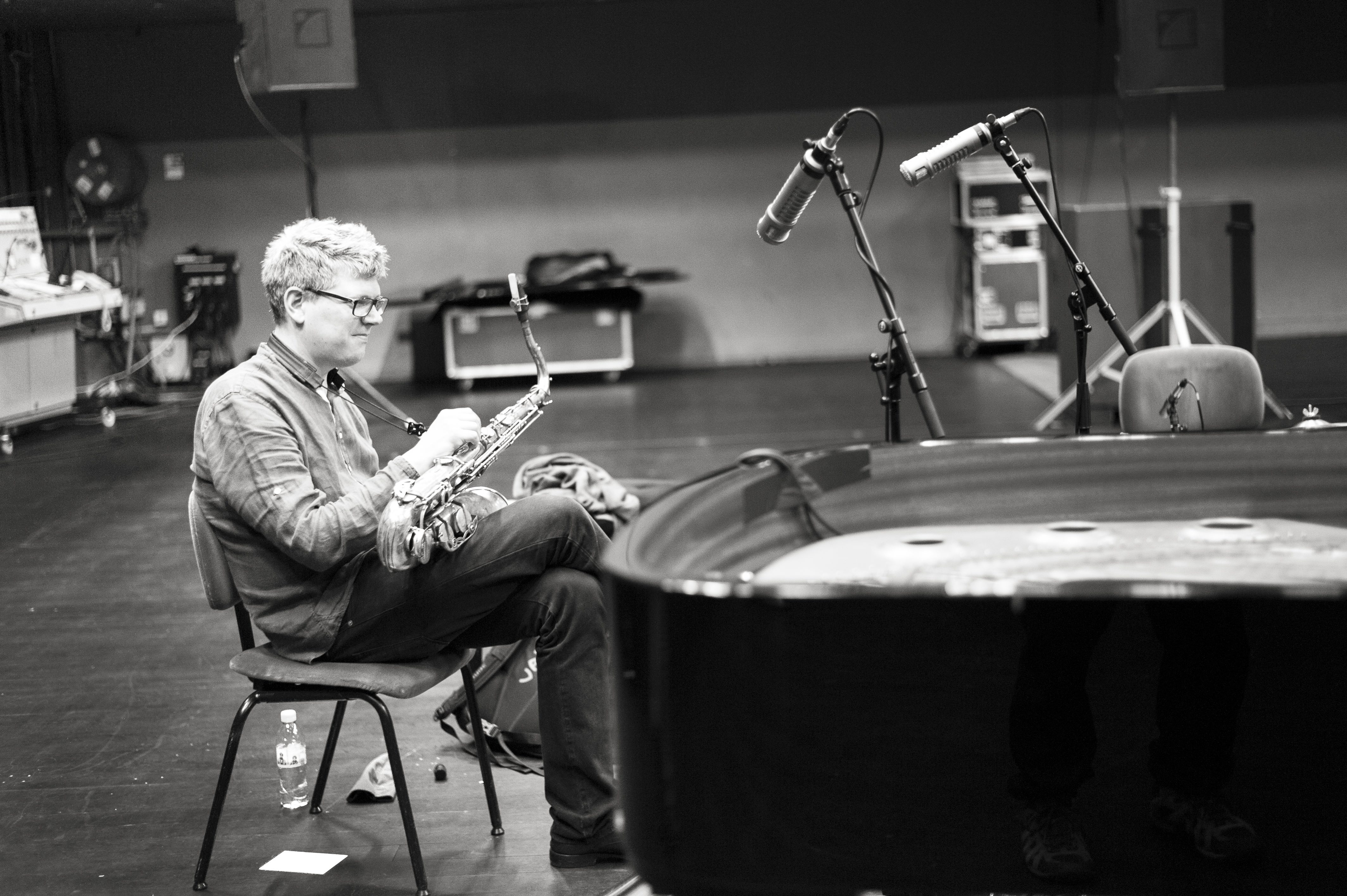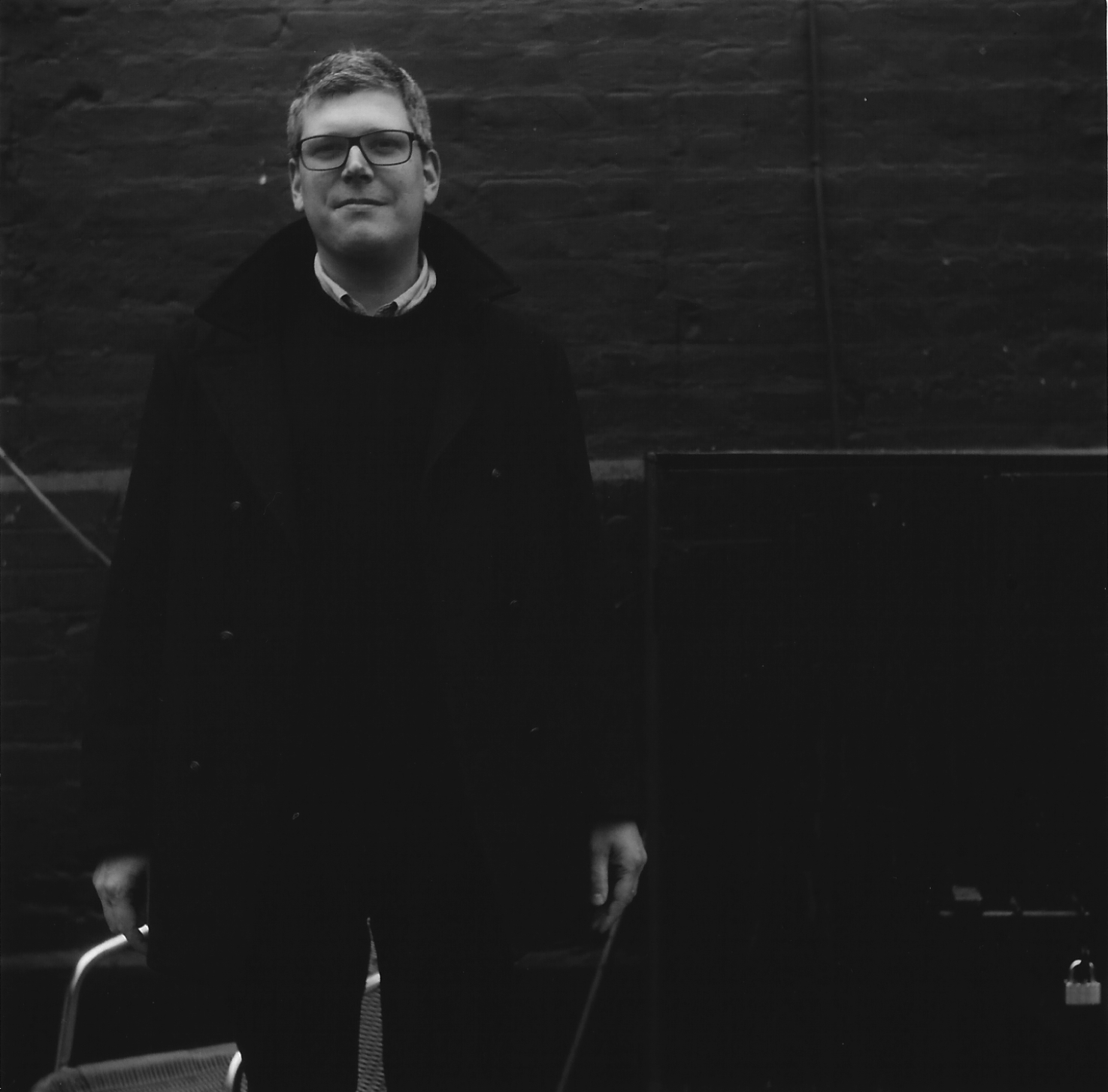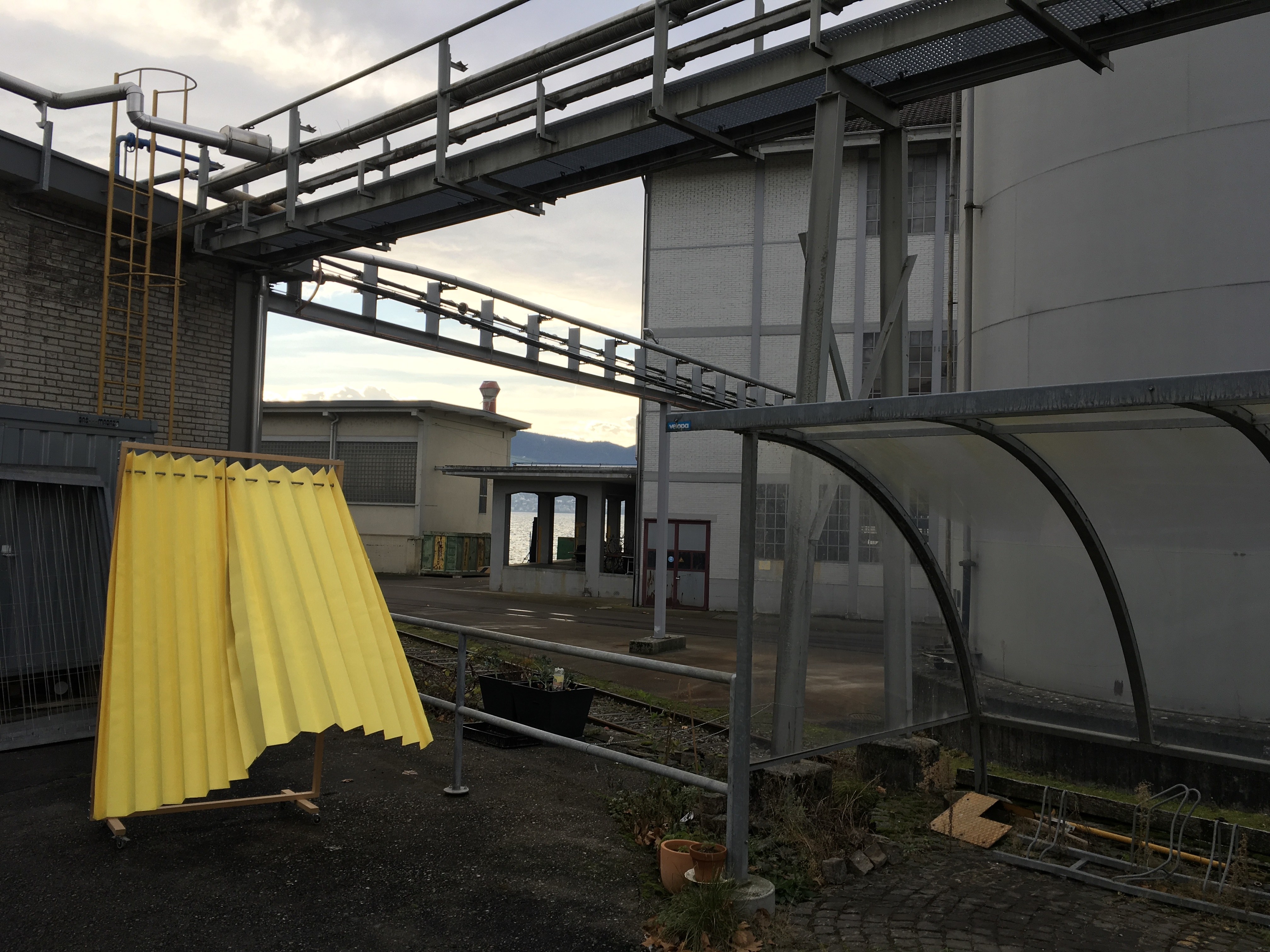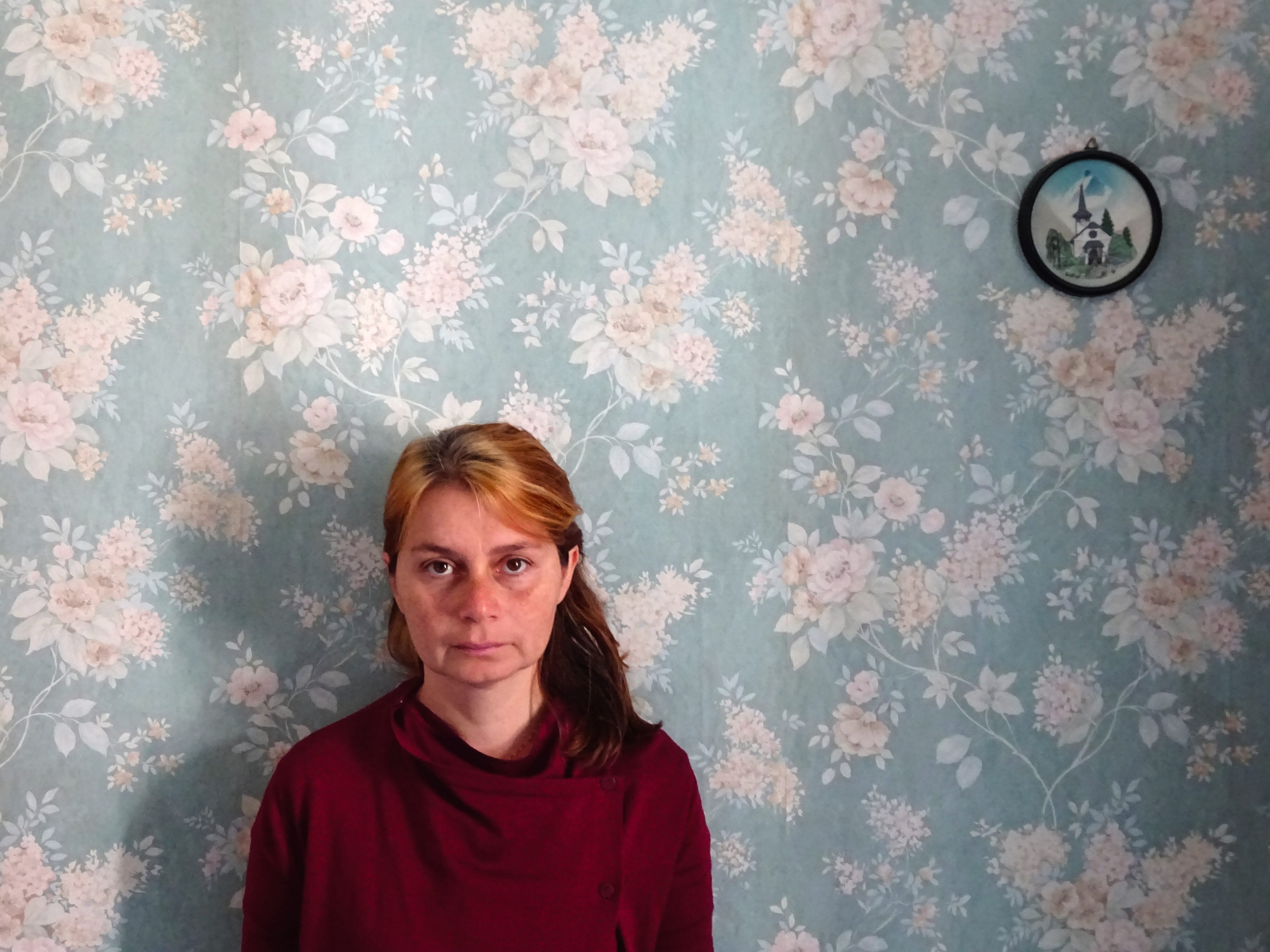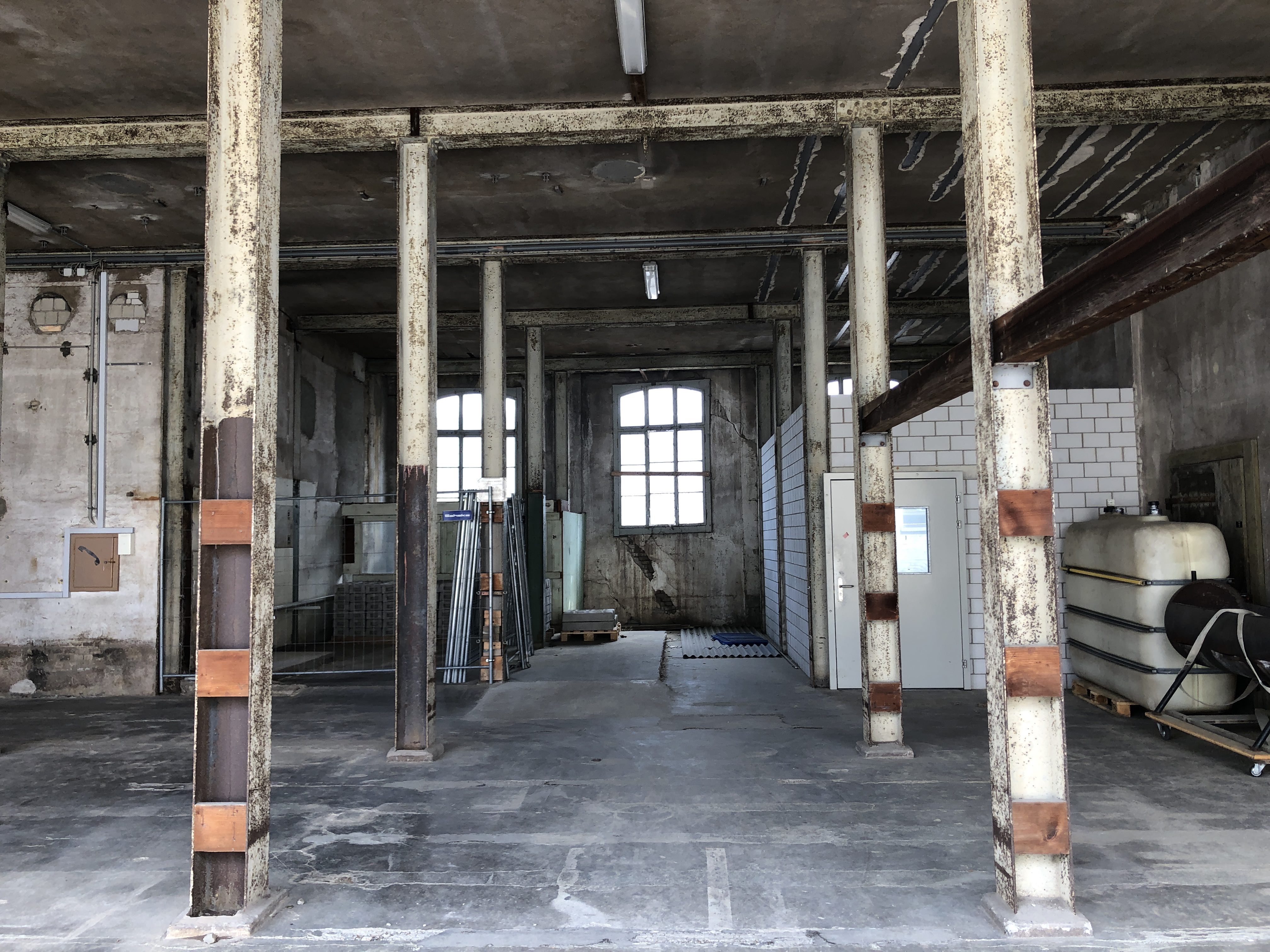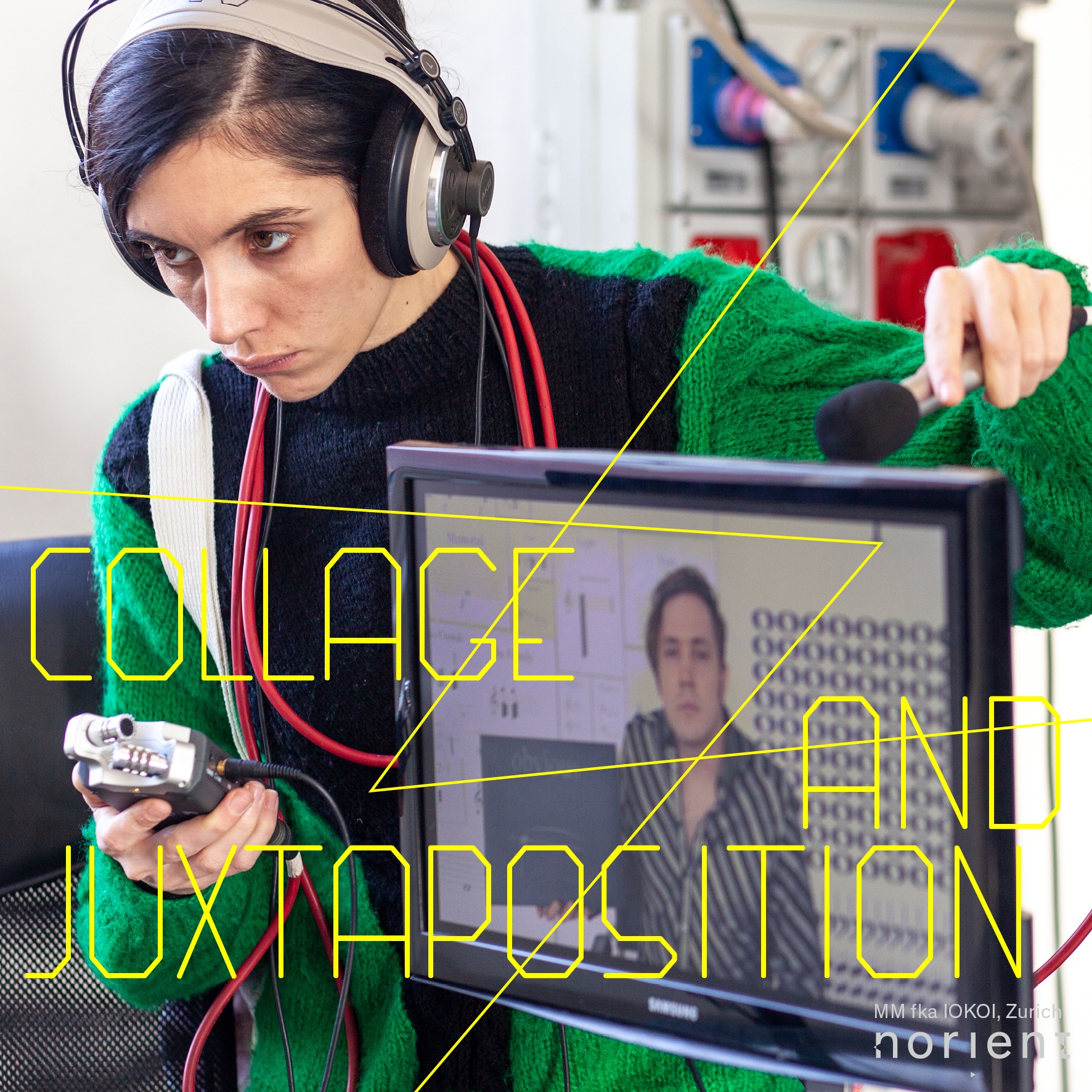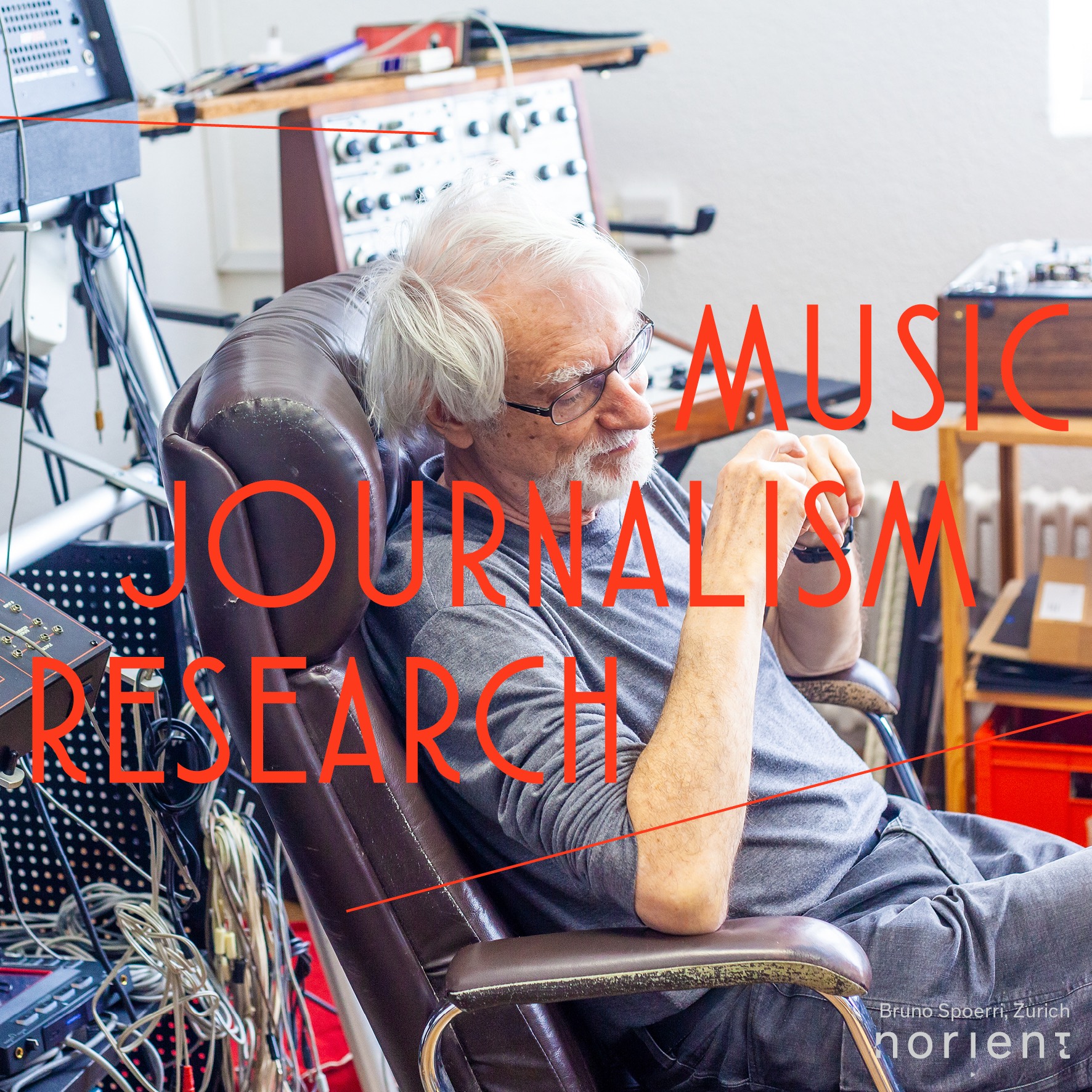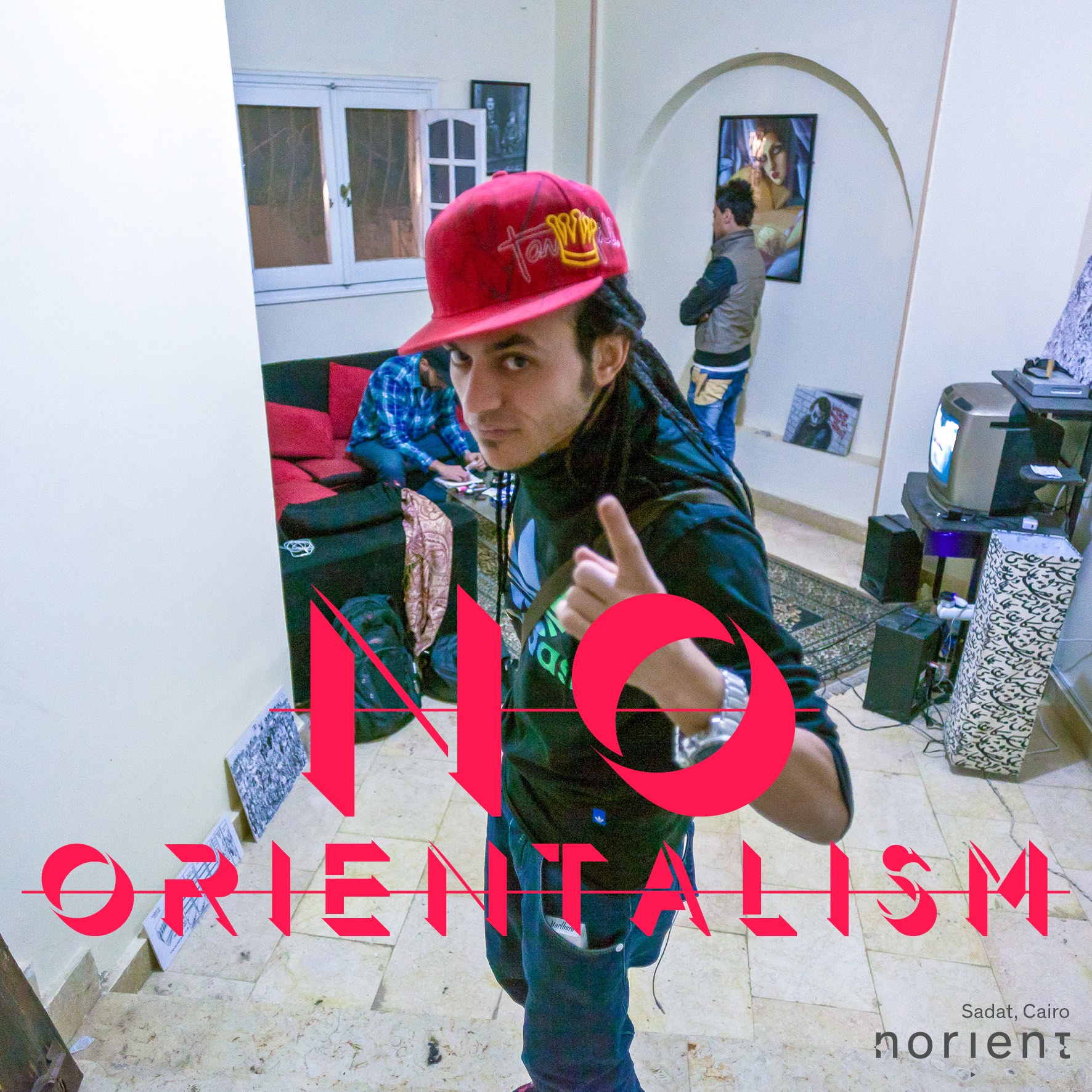RTR launch neo.mx3 & ensemble ö!
Interview with David Sontòn-Caflisch by Thomas Meyer
RTR celebrates the launch of neo.mx3 with a special concert by local ensemble ö! on October 11, in Chur! Numerous works by Swiss musicians will be performed and RTR will record and film the performances in order to make them immediately available on the neo.mx3 plattform.
Thomas Meyer talks with violinist and composer David Sontòn-Caflisch, ensemble ö!’s artistic director.
Asia Ahmetjanova, La voix, UA ensemble ö!, Chur 2020
Ensemble ö! Was founded in 2002 and at that time it developed out of a string ensemble (Musicuria), which you founded in 1991. You were still in grammar school back then… What was your purpose?
We used to include a piece of new music in every programmewith Musicuria, sometimes even world premieres. The interest then shifted more and more in that direction, so we finally formed the new ensemble ö! with some strings from Musicuria as well as winds, piano and percussion.
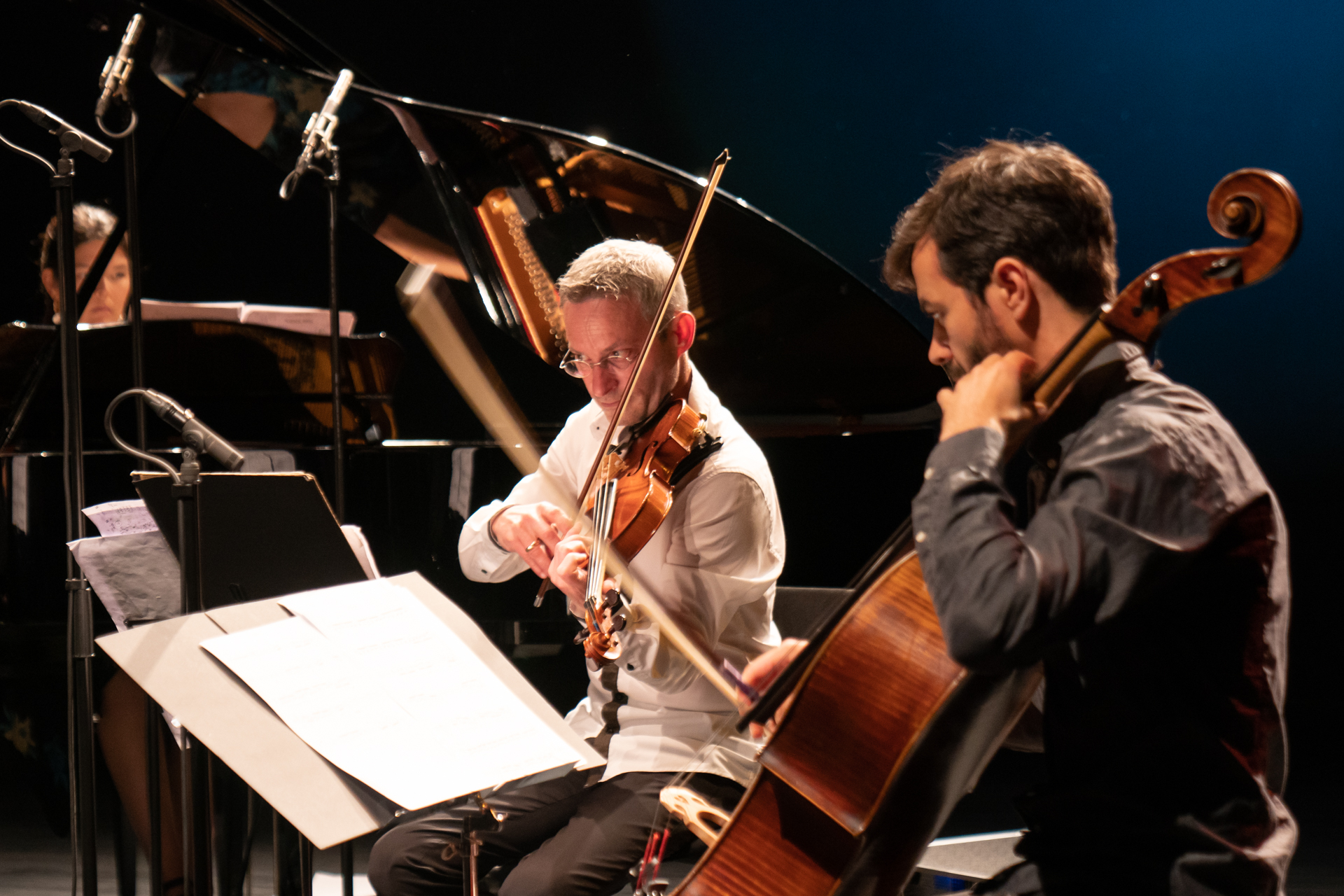
What does this unusual name mean?
By presenting the ensemble I said that the difference between “E- und U-Musik”* was no longer to be made and the Graubünden press interpreted my statement in the following, original way: e and u together would make eu, which pronounced in French, would become ö. Originally, however, I thought of the “ö!” expression which is used to raise a toast here in Graubünden. It is simply a toast to new music.
In your programming, you like to highlight specific topics.
Each season, we focus on one specific theme, which is examined in detail through six programmes. As artistic director, my aim is not only to select good pieces, but also to create clever programmes that tell a story and are structured as a whole, to be imagined as one big piece per evening, involving various composers.
Stephanie Hänsler, Im Begriffe, ensemble ö! 2017
..the vastness of the universe stands alongside the uniqueness of art…
The current season’s theme is “suns”.
…a wide field. When you look up into the starry sky, you often forget that almost all of these bright spots are suns. Each of them has its own world, and these worlds are incredibly far away and apart. Our nearest neighbour is more than four light years away. That shows on the one hand how small, on the other hand how unique we are. We are able to reflect the world through art or in this case music! So the vastness of the universe stands alongside the uniqueness of art.
These aspects are addressed in different ways: The concerts are called “light years”, “inaccessibility”, “energy”, “opium”… How do you structure the programmes?
In September’s “Light Years” programme for example, mass is facing emptiness: It is impossible to imagine the mass of a billion stars, but there is a great emptiness between the stars. Two of the pieces of the concert (by Vladimir Tarnopolski and Gwyn Pritchard) are incredibly dense, so dense that one cannot follow every note, but only the overall idea. Whereas Luciano Berio’s and Roland Moser’s compositions work with emptiness and are very quiet. Finally, Marc-André Dalbavie’spiece combines both elements.
Jannis Xenakis, Dikhthas, Ensemble ö! 2017
What is new is that you work with a board of curators for these programmes.
Up to now, I had always read intensively on the subject matter. Now I wanted to consult experts. This year, these are a philosopher/psychologist, a journalist, a writer and an astrophysicist, bringing together a great deal of expertise in order to explore the topics I choose even further. In our first session, we went through each programme in detail, incorporating aspects from all disciplines. Short literary texts are then created and woven into the concert. I don’t want the audience to have to deal with something purely theoretical; that is why the writer translates his or her thoughts into literature. But the texts also encourage the audience to experience a piece more intensively. They create a “fil rouge” to the music, which remains in the foreground. Furthermore, I personally introduce each concert, by going into detail about the music to be presented.
So the discussions anticipate the concerts.
This year they do, it is a pilot project. Our wish for the future is to open these meetings to the musicians as well the audience, in order to create an addition to the concerts.
It is therefore a mediating and interdisciplinary project…
Perhaps rather “transdisciplinary”. There are several disciplines that are intended to delve deeper into the music. It is still somewhat fashionable to add video or lighting elements to a concert in an interdisciplinary way, which is justified, but one also has to be careful, as this might just create an external distraction. Our music needs quite a bit of concentration and should be combined intelligently. You can’t just add entertainment elements.
Three composers appear repeatedly: the Frenchman Tristan Murail, the Austrian Klaus Lang and the Swiss Klaus Huber, who died in 2017.
Murail writes very sensual music. It is important for me to emphasise this aspect, because it is often claimed that New Music is too abstract. What fascinates me about Lang is how he creates musical widths in his own unique way. As for Huber, I consider him one of the great Swiss composers who is currently not played so often. Throughout his life, he has been concerned with the role of mankind in the universe. By the way, in his “Ein Hauch von Unzeit” for solo flute he asked performers to come up with their own, new versions and we are presenting two new ensemble versions of it.
Klaus Huber, Ein Hauch von Unzeit IV (version for soprano, piano, flute, clarinet and organ), Ensemble Neue Horizonte Bern, 1976
With Duri Collenberg’s and Martin Derungs’ world premieres you also refer to your own origins (Graubünden)…
They actually represent the youngest and the oldest generation of Graubünden composers within the “Tuns contemporans” (Contemporary Tones), our Biennale, which we founded two years ago together with the KammerphilharmonieGraubünden. We felt the need for the two professional orchestras of the canton to join forces. It should take away the fear of enjoying new music. Magnus Lindberg from Finnlandwill be composer-in-residence for the next series.
“Ladies only!”
You also launched a “Call for Scores” for the festival… Who was it aimed at?
Female composers of all ages and from all over the world. The motto is: “Ladies only!”. 126 scores were submitted, three of which we will perform at the Biennale. But I will certainly take one or the other from this huge collection into account for future seasons.
Interview: Thomas Meyer
* in German the expression “E- und U-Musik” refers to “ernste Musik und Unterhaltungsmusik”, which can be translated with serious vs. popularmusic.
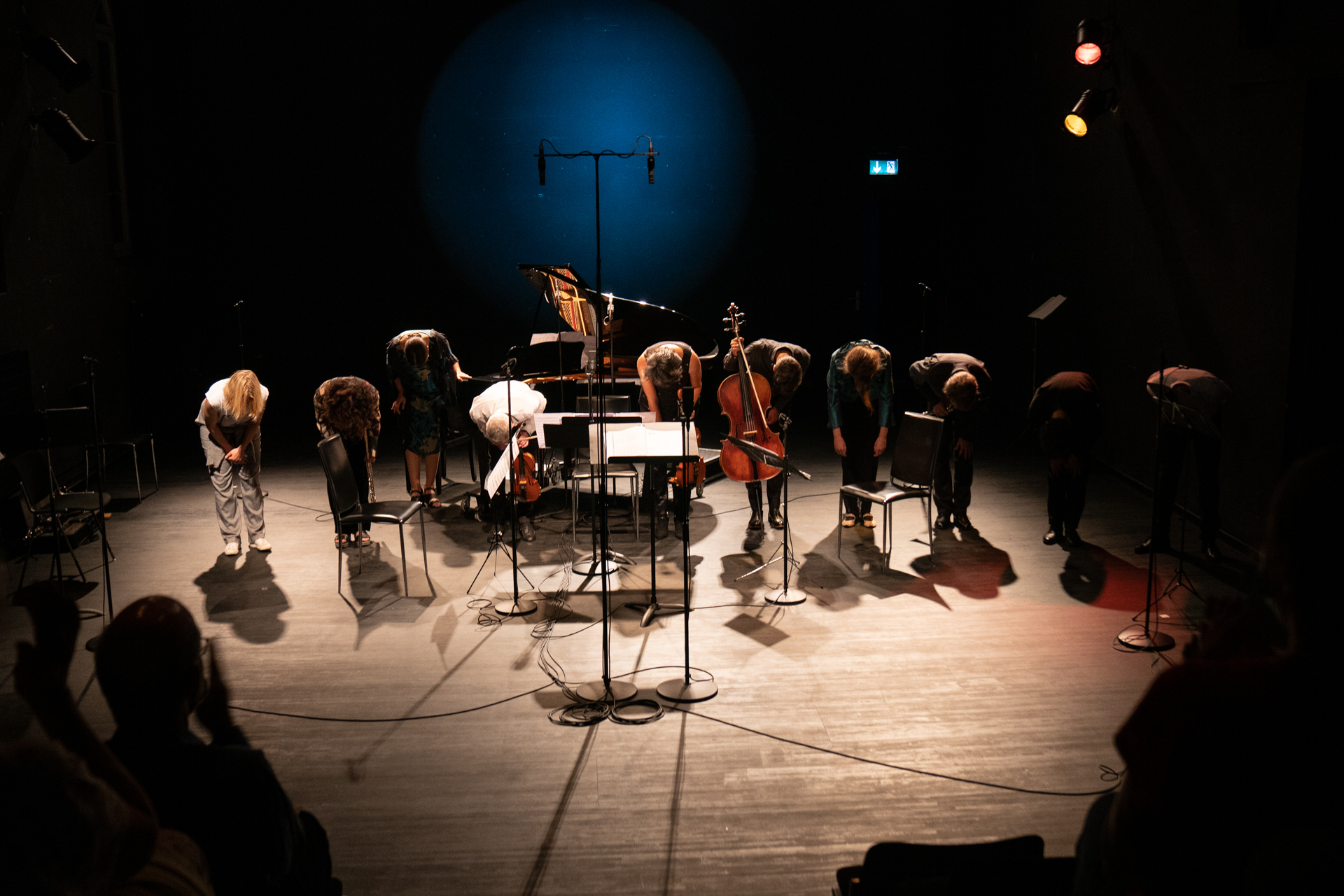
Concert spezial launch neo.mx3 &Ensemble ö!. 11. Oktober 2020:
Stephanie Hänsler: Im Begriffe, Alfred Knüsel: Mischzonen, Asia Ahmetjanova: La voix, David Sontòn Caflisch: aqua micans (danach als Video auf neo.mx3 und rtr.ch/musica).
Ensemble ö!: Saison 20/21
Tuns contemporans, Biennale für Neue Musik Chur: 9.-11. April 2021
Broadcast SRF 2 Kultur:
Musik unserer Zeit, 11.11.20.: ö! Ensemble für neue musik, Redaktion Florian Hauser
Stephanie Haensler, Asia Ahmetjanova, Magnus Lindberg, Tristan Murail, Vladimir Tarnopolski, Gwyn Pritchard, Klaus Lang, Marc-André Dalbavie, Asia Ahmetjanova
Neo-profiles: Ensemble ö!, David Sontòn Caflisch, Klaus Huber, Stephanie Hänsler, Martin Derungs, Roland Moser, Alfred Knüsel


